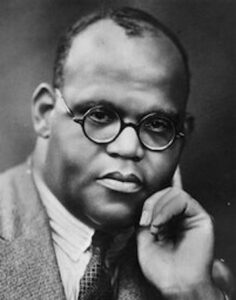
Harold Moody
*Harold Moody was born on October 8, 1882. He was an Afro Caribbean physician and activist. Harold Arundel Moody was born in Kingston, Jamaica, and Moody was the son of pharmacist Charles Ernest Moody and his wife Christina Emmeline Ellis. He completed his secondary education at Wolmer's Schools.
In 1904, he sailed to the United Kingdom to study medicine at King's College London, finishing top of his class when he qualified in 1910, aged 28. Having been refused work because he was Black, he started his medical practice in Peckham, south-east London, in February 1913. Moody's brother, Ludlow, also studied medicine at King's College London, where he won the Huxley Prize for physiology. Ludlow married Vera Manley, and they moved to the Caribbean. Another brother was the sculptor. Moody married Olive Mable Tranter, with whom he worked at the Royal Eye Hospital in London, and they had six children.
As an Activist, Moody is credited with overturning the Special Restriction Order (or Coloured Seamen's Act) of 1925, a discriminatory measure that sought to provide subsidies to merchant shipping employing only British nationals and required alien seamen (many of whom had served the United Kingdom during the First World War) to register with their local police.
Many Black British and Asian nationals had no proof of identity and were made redundant. In March 1931, Moody formed and became President of the League of Coloured Peoples (LCP), which was concerned with racial equality and civil rights in Britain and elsewhere in the world. Its first members included C. L. R. James, Jomo Kenyatta, Una Marson, and Paul Robeson. In 1933, he became involved in the Coloured Men's Institute as a religious, social, and welfare center for sailors.
A Christian, Moody was active in the Congregational Union and the Colonial Missionary Society. As a respected and influential doctor, Moody organized the local community during the Second World War. In the last months of his life, Moody undertook a speaking tour of North America. He died at his home at 164 Queen's Road, Peckham, on April 24, 1947, aged 64, after contracting influenza.